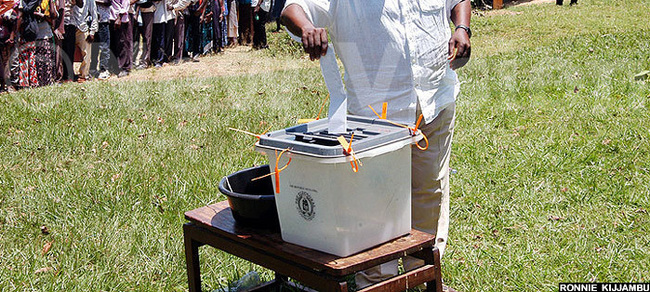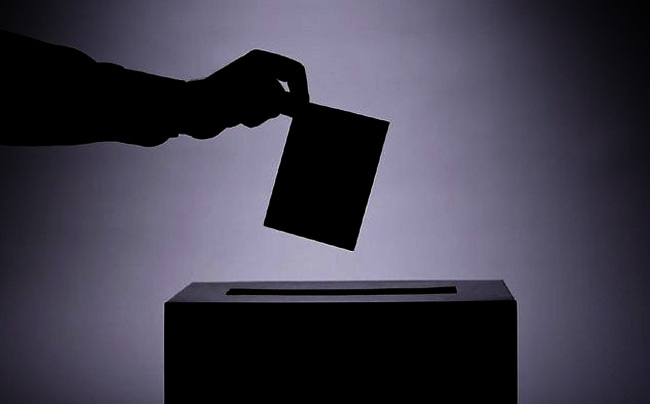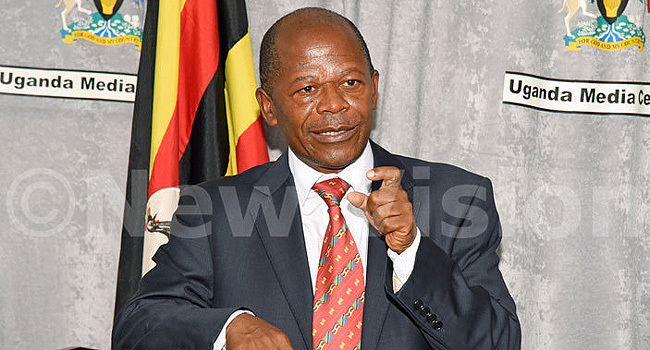Can we end voter bribery in schools?
"There are parents who fund their children to bribe their colleagues at school, which is outright wrong," says state minister for higher education Dr. John Chrysostom Muyingo.
EDUCATION
As the day ends at this city secondary school, a teenage girl calls the attention of her colleagues. She has a pack of sweets and cakes to distribute. It will be elections for prefects the following day, and she is contesting for the head girl's position.
She knows that the only way she can win this election is through bribing student voters.
The teachers at this secondary school seem unbothered by this student's strategy. All they care about is that students will elect their leaders. How they get to make that choice is none of their major concern.
This is a scene that is replayed in so many schools in the country almost every year. Experts and policy makers say voter bribery is one of the main troubling issues sweeping through many schools, and, out of school, might go on to affect the quality of leaders who stand to be elected into office.
As schools prepare for the opening of the new term in a couple of weeks, after a short holiday they have just started, electing of prefects to take over from the departing teams is one of the main issues being drafted on their calendars.
Dr. Yusuf Nsubuga, a former director for basic and secondary education and now a private education consultant, says voter bribery is "a terrible vice most schools tend to ignore and it nurtures a culture of bad leaders".
He says that election of prefects is one of the civic trainings schools should give to students - and must be done well.
"Students need to be taught to understand that rigging of elections is wrong and must stop. If vote rigging starts this early and is not tamed, we must then worry for the future of democracy in the country," says Nsubuga.

Schools' elections are more or less a mock process of the parliamentary and presidential elections, in which by law, bribery is illegal and unacceptable. Some of the students' leaders have over time ended up as presidential candidates, parliamentarians and local leaders.
Nsubuga says that if we do not pay attention to our current student leaders, "we should then be prepared for leaders who not obey electoral laws".
Allan Obbo, the headteacher of Seeta High School, says students should be helped by parents and schools to take part in free and fair elective politics in schools.
They should also be encouraged to take part in elective politics in schools. "My son was a student leader and he managed to excel in his Primary Leaving Examinations with Aggregate 5. But I assured him that he could only be a student leader on merit, and could not give him money to buy sweets."
Why care?
Bribery is defined in Section 64 of the Presidential Elections Act.
Subsections (1) and (2) of that section says: "Any person who either before or during an election with intent either directly or indirectly to influence another person to vote or to refrain from voting for any candidate, gives or provides or causes to be given or provided any money, gift or other consideration to that other person, commits the offence of bribery (...)"
The same part of this law says that a person who bribes others is liable on conviction to a fine not exceeding seventy-two currency points or imprisonment not exceeding three years or both.

Much as such a law may not affect students, it depicts the deeper consequences of bribing voters in the future should the such students grow with the same vice and get into elective politics.
In Uganda, courts have overturned several parliamentary and local council victories on grounds of bribery in the last one decade. This is an illegality which is already eating into the country's elective politics.
The other part of the law says: "Any person who receives any money, gift or other consideration under Subsection (1) also commits the offence under that Subsection." Section 68 of the Parliamentary Elections Act states that a candidate shall not fundraise or give out donations during the period of campaigns."
Peter Tusubira, a retired headteacher, says schools should not allow pupils or students to bribe voters. "Under normal circumstances, a student involved in voter bribery should be disqualified from the electoral process."
But he says to effectively have students who are sensitive to the importance of elections and running them in the right way, there is need for civic education in schools.
Daniel Ayebare is the managing director and co-founder of Aye Africa Foundation, a youth empowerment organisation. He says much more needs to be done to have proper civic education in the country. "There must be a deliberate effort to educate students on the right way of conducting elections."
He says this is not an issue that should be taken lightly if the Governments in Africa are interested in having their citizens grow in the right direction of democracy.
"We need a culture of civically informed citizens and an articulate electorate, well-equipped to elect competent leaders necessary for the desired future of Uganda and Africa at large.
"A bent tree must be aligned in its infancy lest it breaks in the process of being straightened at maturity after the stem has hardened," says Ayebare, who adds that there is need for a deliberate effort to fight bribery of voters in all schools' elections.
 State minister for higher education, Dr. John Chrysostom Muyingo says what we teach children stays with them for the rest of their lives. (File photo)
State minister for higher education, Dr. John Chrysostom Muyingo says what we teach children stays with them for the rest of their lives. (File photo)
Education institutions play a vital role. On average, by the time an individual graduates from university in Uganda, they would have spent their first 20 years of life in education institutions.
Ayebare says that after a life cycle in schools, such students have already developed deep-rooted belief and culture of what they want to do, and how to do it. "Should their civic ideology be poisoned with voter bribery, this will leave a massive ripple effect on our country."
Education ministry weighs in
The education ministry's undersecretary, Aggrey Kibenge, says all schools are expected to have an established students' leadership through an elected process.
"This is part of what any good school should establish. But the onus is on the school heads to ensure a due process had been undertaken for students to choose their right leaders. We obviously do not condone voter bribery in schools," he says.
"Schools must fight the voter bribery vice."
The state minister for higher education, Dr. John Chrysostom Muyingo, says shares similar sentiments.
"This is a matter which parents must be interested in. There are parents who fund their children to bribe their colleagues at school, which is outright wrong," he says.
Any good parent who cares about their child's future and that of this country should not be supporting voter bribery. What we teach children stays with them for the rest of their lives, adds the minister.